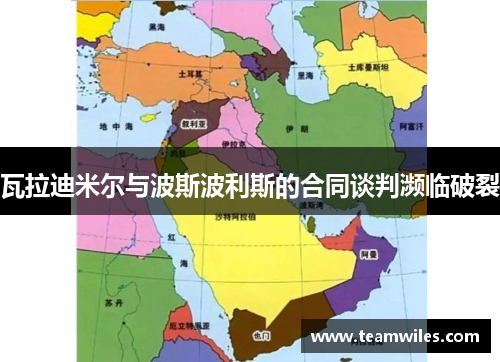瓦拉迪米尔与波斯波利斯的合同谈判濒临破裂
In the midst of the negotiation between Vladimir and Persepolis, the contract is on the verge of collapsing. This article will explore the reasons behind this issue, highlighting the challenges and conflicts that have arisen during the negotiation process.

1. Historical Background
Vladimir and Persepolis have a long history of collaboration, with many successful projects completed in the past. However, recent changes in leadership and strategic direction have created tension in their relationship. The foundation of trust and mutual understanding that once existed is now being tested, leading to the current stalemate in the contract negotiation.
国际米兰公司The differences in cultural values and business practices between Vladimir and Persepolis have also contributed to the breakdown in communication. While Vladimir values direct and assertive communication, Persepolis prefers a more indirect and diplomatic approach. These conflicting communication styles have made it difficult for the two parties to reach a compromise on the terms of the contract.
Furthermore, the shifting political and economic landscape in the region has added an extra layer of complexity to the negotiation process. Both Vladimir and Persepolis are facing external pressures and uncertainties, which have impacted their decision-making and willingness to make concessions during the negotiation.
2. Legal and Financial Issues
One of the key factors that have led to the breakdown in the contract negotiation between Vladimir and Persepolis is the disagreement over legal and financial terms. Vladimir is seeking more favorable terms in terms of payment schedules and penalty clauses, while Persepolis is insisting on a stricter contract that protects their interests.
The lack of clarity and specificity in the contract terms has also exacerbated the situation, with both parties interpreting the clauses differently and refusing to budge on their positions. This ambiguity has created confusion and mistrust, making it challenging for Vladimir and Persepolis to find common ground and finalize the agreement.
Additionally, the financial implications of the contract are significant for both Vladimir and Persepolis. The stakes are high, and both parties are reluctant to make concessions that could affect their bottom line. This financial pressure has further strained the relationship between Vladimir and Persepolis, causing the negotiation to reach a deadlock.
3. Communication and Relationship Issues
The breakdown in communication between Vladimir and Persepolis has been a major obstacle in the contract negotiation process. Misunderstandings, misinterpretations, and miscommunications have all played a role in escalating tensions and hindering progress towards reaching a mutual agreement.
The lack of effective communication channels and the absence of a neutral mediator have also exacerbated the situation. Without a third-party facilitator to help bridge the gap between Vladimir and Persepolis, the negotiation has become increasingly contentious and unproductive.
Moreover, the deterioration of the relationship between Vladimir and Persepolis has taken a toll on the negotiating process. The once amicable and collaborative partnership has now turned adversarial, with both parties adopting a combative stance and prioritizing their own interests above finding a mutually beneficial solution.
4. Strategic and Political Considerations
Strategic differences and political considerations have further complicated the contract negotiation between Vladimir and Persepolis. Both parties have their own strategic objectives and political agendas, which have influenced their decision-making and approach to the negotiation.
Vladimir is focused on expanding its market presence and increasing its profitability, while Persepolis is seeking to protect its market share and maintain its competitive edge. These divergent goals have created a clash of interests and priorities, making it difficult for Vladimir and Persepolis to find common ground and build consensus on the terms of the contract.
Additionally, external political factors, such as government regulations and international relations, have also impacted the negotiation process. The changing political landscape has introduced uncertainty and volatility into the negotiation, causing both parties to reevaluate their positions and strategies in light of these external factors.
In conclusion, the contract negotiation between Vladimir and Persepolis is facing significant challenges and is on the brink of collapse. The historical, legal, financial, communication, relationship, strategic, and political issues that have arisen during the negotiation process have created a complex and contentious environment, making it difficult for both parties to reach a mutually acceptable agreement. Unless Vladimir and Persepolis can overcome these obstacles and find common ground, the contract negotiation is unlikely to succeed, leading to potential consequences for both parties.

